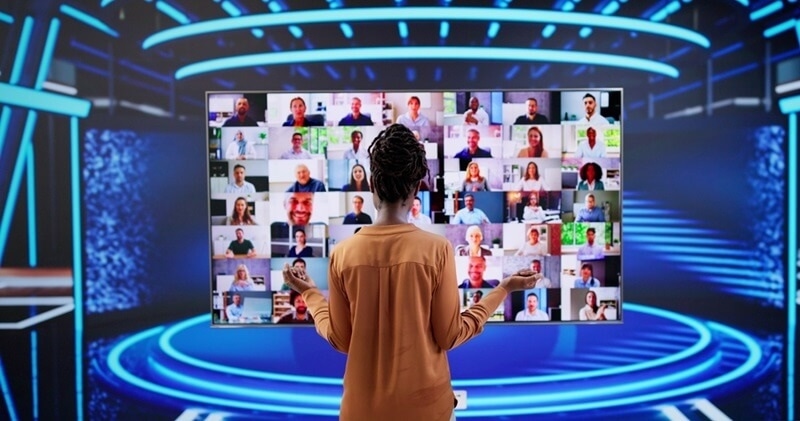
Organizing an event is one thing, and getting people to attend it is another. This is where event digital marketing comes into play. It doesn't matter whether you're an event planner, a company, or an online marketing firm; having a robust online plan can enable you to advertise the event, raise participation, and attendance. This guide will teach you how you develop an entire digital marketing campaign of events, step-by-step, using straightforward tools and methods.
It is worth dwelling on the importance of digital marketing and management of events before getting down to the strategy. Things are different nowadays, and events require more than posters and word-of-mouth advertising. Digital media surfaces with the emergence of social media, search engines, and email, and is the most effective and cost-efficient method of reaching your audience.
Through online marketing, you will be able to market your event even beyond your city. It does not matter whether it is a conference or a concert; you are able to reach the attendees across the world.
Putting social media ads or a newsletter via email is a much more affordable tool in comparison to physical marketing.
The websites enable you to get a real-time measure of the performance of your campaign. This assists in reacting and making changes on the spot.
Creating a powerful digital marketing strategy for events involves planning and using multiple platforms together. This helps you attract, engage, and convert your audience into event attendees.
Start by setting clear goals:
Once the goals are set, identify your ideal audience. Who are they? Where do they spend their time online? This helps in choosing the right digital channels.
Your event website or landing page is your digital home. It should be:
Include videos, speaker bios, ticket pricing, and testimonials if available.
Search Engine Optimization (SEO) helps people find your event when they search online. Use keywords like “Digital Marketing for Events” or “How to do digital marketing for an event” in your headings and descriptions.
Also, focus on:

Social media is one of the most powerful tools in digital marketing for event planners. It allows you to promote your event, engage with your audience, and create buzz online.
Use platforms that your target audience prefers. For example:
Plan posts around key dates:
Use a mix of videos, images, stories, and reels.
Paid ads help you reach people who are not already following you. Use Facebook Ads or Google Ads to promote your event to a specific audience based on location, interests, and behavior.
Email remains a reliable and personal method to promote events. It's especially effective for B2B events or updates about ticketing and event reminders.
Create a sign-up form on your website or landing page. Offer something in return, like a discount code, free guide, or early-bird access.
Don’t just send one email and forget. Send:
Use catchy subject lines and strong CTA buttons like “Reserve Your Seat” or “Buy Tickets Now.”
Partnering with others is a smart strategy in digital marketing for event management companies and planners. Influencers and local businesses can amplify your message.
Choose influencers who share similar audiences. They don’t need millions of followers. Micro-influencers with loyal followers often work better.
Invite influencers as special guests, give them free passes, or offer them affiliate links. This encourages them to promote your event genuinely.
Collaborate on Instagram Lives, podcast interviews, or YouTube videos with partners. This brings their audience to your event page.
Videos are engaging and help people visualize your event. They’re especially effective for digital event marketing and management.
Make short videos highlighting event benefits, speaker insights, or previous event footage. Post them on YouTube, Facebook, Instagram, and even in email campaigns.
If your event is virtual or hybrid, live-stream parts of it. Platforms like Zoom, YouTube Live, and Facebook Live help you connect with remote audiences.
Don’t rely only on your website and social media. Use third-party platforms to increase reach.
List your event on sites like:
These sites already have a large audience looking for events to attend.
Find forums or social groups related to your niche. Engage in conversations and share your event where appropriate.
No digital marketing strategy for events is complete without tracking performance. Use analytics to learn what works best and where to improve.
Track how people find your website, how long they stay, and what pages they visit. This helps you optimize your event page.
Check engagement, reach, and click-through rates on your social posts. Boost the posts that perform well.
Add tracking codes to your event links to track campaign success. Also, use tools like HubSpot, Mailchimp, or Eventbrite to manage and measure everything from one place.
Marketing shouldn’t stop after the event ends. Keep your audience engaged for future events.
Event digital marketing is not a trend, but rather a necessity. Using the correct tools and strategies, every event planner or event management company should be able to make a buzz, sell seats, and establish a long relationship with attendees. Be it that you are brushing up on the process you want to use to perform your digital marketing to an event, or you are learning the process of doing digital marketing to an event you will remember that the secret to success in doing this is always to put effort at it always, always be creative and cognizant with the use of the digital channel. Begin on a small scale, follow your progress, and see your events multiplying!
This content was created by AI